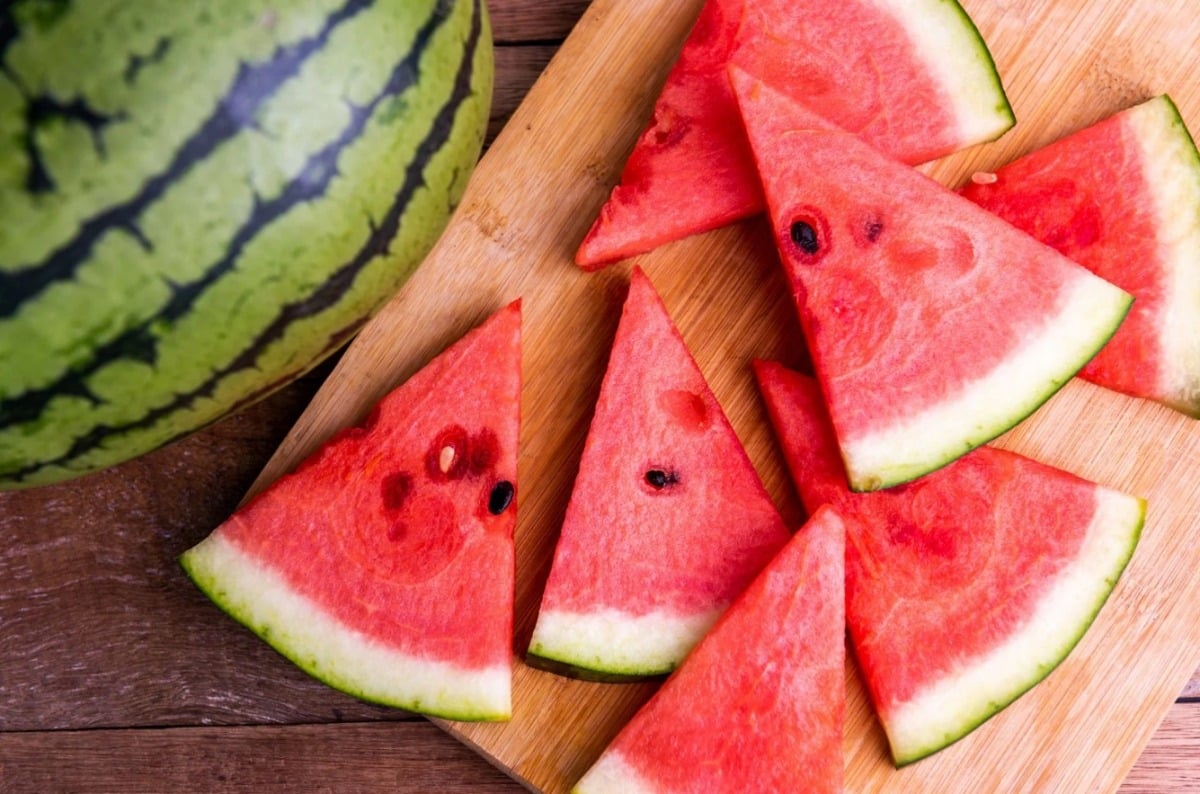According to Sohu, in Henan, China, a middle-aged woman experienced dizziness, nausea, and continuous diarrhea after consuming a few slices of seemingly fresh watermelon. She was rushed to the hospital and fortunately, her life was saved. The cause may be attributed to watermelons injected with chemicals or those that had deteriorated and produced nitrites, a toxic substance.
In Jilin, Mr. Zhang’s family suffered from mild food poisoning after consuming watermelon that had been stored in the refrigerator for two days. Meanwhile, in Fuzhou, Ms. Chen’s body temperature soared to 40.2°C, and she fell into a state of consciousness disorder and severe shock after eating overnight watermelon. The doctor confirmed that she was infected with salmonella, leading to acute gastroenteritis and septicemia.
These incidents serve as a wake-up call, reminding us to pay closer attention to proper watermelon storage and consumption practices.

Why Can Watermelons Be Harmful?
Improper watermelon storage: After cutting, watermelons are susceptible to bacterial invasion if left in the open air or at high temperatures. They can spoil within a few hours, developing an unpleasant odor and becoming slimy. It is best to wrap them in food wrap and store them in the refrigerator, consuming them within 24 hours.
Contaminated utensils: Using knives and cutting boards that have come into contact with raw meat or fish without proper cleaning can transfer bacteria to the watermelon.
Watermelons with inherent pathogens: Watermelons infested with pests and diseases, or those bruised during transportation, may appear fresh on the outside but be rotten inside.
How to Enjoy Watermelons Safely?
Select fresh watermelons: Ripe watermelons have a taut and glossy rind, a green stem, and produce a deep sound when tapped. Avoid watermelons with bruised, soft, or cracked rinds.
Use clean utensils: Before cutting a watermelon, wash your hands and ensure the use of clean knives and cutting boards, preferably rinsed with boiling water.
Consume promptly after cutting: If you can’t finish the watermelon, wrap it carefully, store it in the refrigerator, and consume it within 24 hours.
Precaution for certain individuals: People with diabetes should limit their watermelon intake due to its high sugar content. Those with a weak digestive system should avoid consuming extremely cold watermelon to prevent diarrhea.
Preventing and Managing Food Poisoning in Summer
Summer is a season when food is more prone to spoilage due to high temperatures. To prevent food poisoning:
Purchase food from reputable sources and always check expiration dates.
Store food properly: Keep perishables in the refrigerator at 4°C and frozen items in the freezer at -18°C.
Do not use the same knives and cutting boards for raw and cooked foods. Wash fruits and vegetables thoroughly. Ensure seafood and meat are thoroughly cooked.
Avoid eating at unhygienic eateries, and limit your consumption of raw and cold foods.
If you suspect food poisoning:
Stop consuming the food immediately. If you are conscious, induce vomiting by drinking warm water and stimulating the throat.
Drink diluted salt water to replenish fluids and minerals.
In severe cases (high fever, continuous vomiting, disorientation), call the emergency services (120) immediately. During transportation, keep the affected individual lying on their side, maintain a quiet environment, and bring along samples of the consumed food, vomit, or stool for medical testing.
Be Wary: 3 Cheap Veggies You Should Never Buy, For Your Own Good!
“Health experts issue a warning about three seemingly harmless and affordable vegetables that are widely available but could pose potential health risks. These vegetables, despite their prevalence, should be avoided to protect your well-being and ensure you don’t end up paying a hefty price for your health.”
6 Cooking Habits That Are Ruining Your Meals and Your Health: Bad for Your Heart and Waistline. #3 Will Surprise You!
“Unhealthy cooking habits can take away the joy of relishing delicious meals and impact your family’s health. It’s time to revamp your culinary routines and embrace a healthier approach to cooking. Say goodbye to these common mistakes and watch your dishes transform into mouth-watering, nutritious delights that everyone will love.”
The Unassuming Culprits: 4 Everyday Items That May Be Harming Your Family’s Health
The kitchen is often the heart of a home, but it can also be a hotbed of hidden health hazards. While they may seem harmless, everyday kitchen items can pose serious risks to your well-being if used long-term. Experts are now warning about four common items in particular that could be detrimental to your health, urging homeowners to remove them from their kitchens immediately to avoid potential illnesses.


































